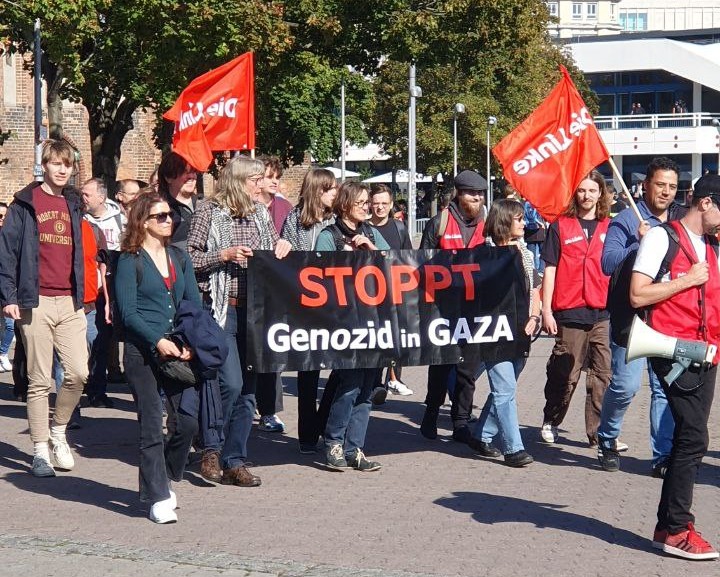This is the second installment in a two-part article monitoring the actions of Rio de Janeiro Governor Wilson Witzel since taking office, focusing on public security, governance, and social and economic development. Witzel was elected last October on a public security-driven campaign, promising to “protect police from potential conviction,” raising the question of who would benefit from said security. In this article, we analyze his achievements from inauguration to present day, as well as discrepancies between his rhetoric and practice.
After taking office in January, Wilson Witzel provided his aides with a Plan of Directives and Priority Initiatives of the Rio State Government, outlining 104 goals to be reached within the first 100 days of government, and another 99 goals for the first six months. At the administration’s 100-day mark, the government released a separate document, titled “The Beginning of a New Future: 100 Days, Results from the Government,” as a follow-up. This document does not mention the goals set for 180 days (six months), nor has any new document assessing this period’s goals been published, making it impossible to track their progress.
This installment analyzes the main goals and actions of the Rio state government in its first six months, focusing on the “Economic Development and Regionalization” and “Human and Social Development” pillars as outlined in the government’s 100-day document.
3. Economic Development and Regionalization
Among the government’s declared achievements is the establishment of new parameters for Rio’s public water utility CEDAE‘s social rate, aiming to expand preferential rate coverage from 100,000 to 300,000 low-income families. The goal of creating a new rate-model by restructuring minimum fees is reportedly 80% complete. Separately, Witzel has expressed his intention to privatize CEDAE as a means of achieving fiscal recovery for the state. Specialists and social movements alike have condemned the prospect of privatization, affirming that the water supply must be kept public and universal, rather than managed for profit by the private sector. They maintain that privatization would increase inequality, as a private company would possibly seek increased fees or cease to operate in less profitable areas, such as favelas.
Another goal in this section, one that would allow a portion of the profits from the state lottery system (LOTERJ) to be applied to public security expenses (the current law states that they may be applied to school and hospital assistance, areas of public interest, educational, sport and cultural services), has disappeared from the 100-day document. Meanwhile, another goal, that of “resuming the cable car operations,” without specifying whether this refers to the cable car system in Morro da Providência favela or Complexo do Alemão‘s favelas, was not achieved in either location. The 100-day document states only that there exists a working group dedicated to restoring activity in Alemão.
The original goal of “creating the State Land Regularization Plan (PERF), allowing greater access to concession of use titles for housing in communities” became simply “create measures to draft the State Land Regularization Plan (PERF)” and was marked accomplished, though creating measures to draft the plan is very different from actually creating a plan. At the event marking 180 days in office, the governor announced that land titles would be granted to the residents of Morro do Preventório, in Rio’s sister city of Niterói across the Guanabara Bay. It was not clear, however, if this would constitute a resumption of work already being undertaken by the Land and Cartography Institute of the State of Rio de Janeiro (ITERJ), the body responsible for this regularization, or if the process would belong to a new program.
Among the original goals for the government’s 180-day mark was that to “identify, catalog and monitor families in hazardous areas and where to relocate them,” an idea that interacts with the security pillar goals, but does not appear in the 100-day government report, leaving it unclear whether or not this is taking place at all. Another goal, one that aims to “consolidate rural and urban settlements through the fostering of infrastructure works, delivery of equipment and supplies and projects to create jobs and income,” is ambitious, given that it does not define specific territories or a specific number of settlements that must be reached.
This section also mentions goals related to a program that the government claims to have initiated in the 100-day report, called Rumo ao Rio (Bound for Rio), and a kit to help attract major events. These include candidacy for the 2020 Global Summit on Urban Tourism, which relates to the goal of “strengthening security for tourists at attractions and tourist areas in the city of Rio”—favoring once again the security of tourists and residents of touristic areas over the rest of the city’s inhabitants—and the implementation of both the MotoGP World Championship and Formula 1 at the city’s new racetrack.
The new racetrack in turn may remind readers of the old racetrack, demolished in 2012 for the construction of the Olympic Park, causing the violent eviction of almost all of the families of the Vila Autódromo community. Just as in the case of the Olympic Park, only one consortium participated in the tender for new racetrack. The tender has previously been blocked by the Public Prosecutor’s Office due to the absence of environmental impact studies surrounding the project’s effects on the neighborhood of Deodoro, which is home to a large remaining patch of urban Atlantic rainforest.
The insistence of successive administrations on attracting large events for the city flies in the face of evidence that these events carry overwhelmingly negative legacies, as they have provoked everything from evictions and gentrification, affecting the right to housing for thousands of families, to excessive state spending, contract corruption, and underused constructions.
4. Social and Economic Development
For the government’s 180-day goals, the goal of “developing a policy of attending to families enduring social hardship” and “developing activities for the protection and promotion of food security” shows no mention of progress. What the government has done is re-register 1,340 families in the social rent support program, which corresponds to 20% of beneficiaries, and conduct attendance and monitoring of 1,571 people and family members of victims of rights violations. The document does not specify how this attendance is undertaken, what type of rights violations are included, or how this relates to the total number of victims.
In the 100-day results document, Witzel claims to have implemented a program called Citizenship Action by the Leão XIII Foundation. There is no online presence for this program, either on the government’s official website or in the government daily registry. If created, the program would confusedly hold the same name as the non-profit organization created by beloved activist-sociologist Herbert de Sousa, known as Betinho, in 1993.
The document includes other achievements not found in the Directives Plan, such as the “implantation” of the Novo Olhar (New Vision) program, giving free eye exams and glasses to the population. The program has been in existence since at least 2017 (it would be more accurate to stipulate the continuation or maintenance of the program). The document also mentions the reorganizing of shelters, without specifying what this means. Recently, the governor defended obligatory internment in shelters for homeless people with issues of mental illness and drug addiction.
The 100-day document also includes goals related to mega-events, including a bid for the 2019 World School Games (which is 90% complete) and attracting events such as UFC Rio de Janeiro, the Rio Open, the World Surf League, Rally dos Sertões 2020, Red Bull sports events, and the South American Mixed Martial Arts Championship. It is not clear how these events will contribute to the social and human development of the state’s residents. The governor also promised reforms of the Rocinha favela’s sport center, though this was not part of the Directives plan.
This article first appeared on the RioOnWatch Website. Reproduced with permission from the author.



